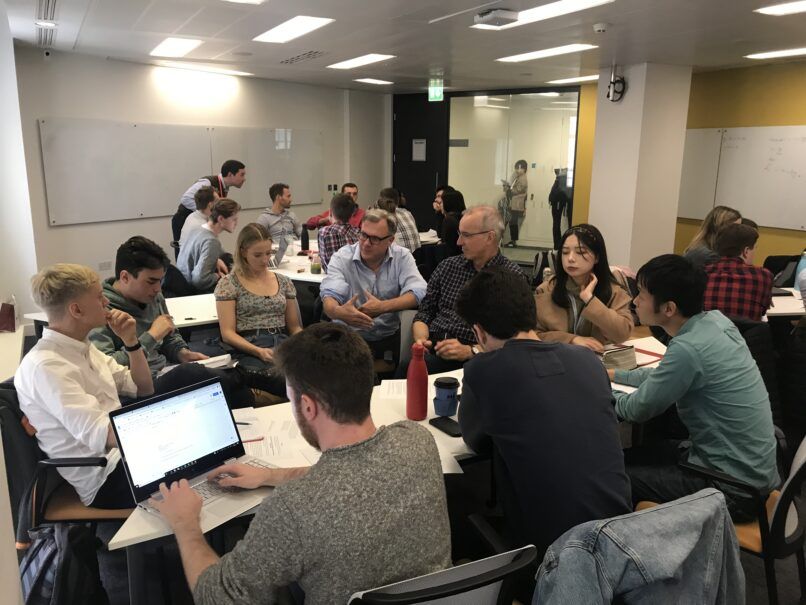
The Strand Group’s MA in Government Studies is the result of 20 years of developing a pioneering approach to the study of British government. Teaching is at the heart of our mission. Our institutional partnerships, as discussed in my colleague Dr Jack Brown’s blog, allow us to provide a teaching experience which brings to life the people and places behind decision-making. The classroom culture in Strand Group teaching is important to us, and so students on the MA Government Studies will benefit from being part of a small cohort.
Why does small cohort teaching matter?
Being part of a small cohort allows our students to get to know one another and to get to know us (module leaders). This allows students to develop their own capacity to learn, articulate their perspectives, listen to others, and synthesise this to ultimately enhance their academic excellence and employability. Alongside this we will be holding tutorials whereby small groups of students will regularly meet with their tutor throughout the year to discuss progress, challenges, and to develop further skills and knowledge.

The MA Government Studies will see students benefit from a wide range of teaching techniques developed over two decades. This includes case studies which allow students to access curated primary sources, work in small groups to unearth the perspective of their policymaker, and then contribute to a role play of the original decision-making episode.
For example, students who choose ‘The New Labour Years’ take part in a case study where they role play the Foundation Hospital debate of Tony Blair’s second term. Students take on the characters of (then) Secretary of State for Health Alan Milburn, Chancellor of the Exchequer Gordon Brown, or Prime Minister Tony Blair. It allows for an energetic learning experience where knowledge is integrated and applied in a dynamic way. In last year’s class, the experience was made all the more real, when in the second hour Alan Milburn himself joined us and one student remarked, “I was just being Alan Milburn!”
Our module content and methods are continually refined because we continue to develop our own research and integrate this into our teaching. We also link the periods we are studying in class to what has happened in government recently. This aids students’ in understanding the correlation between what has happened and what is happening. Through this we see that, as Professor Jon Davis says, ‘History is dynamic’.